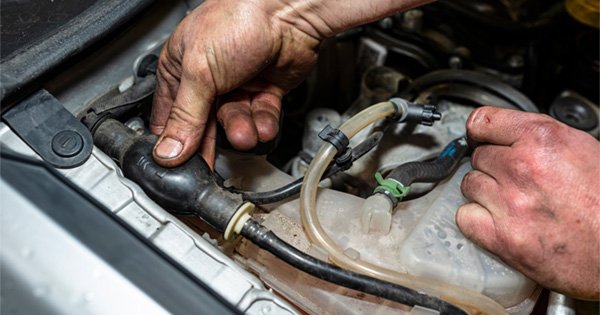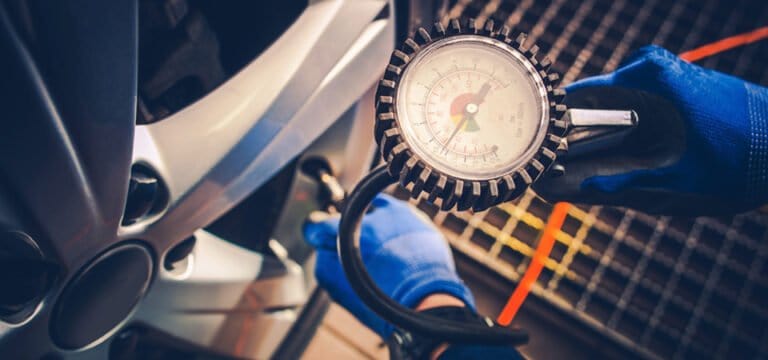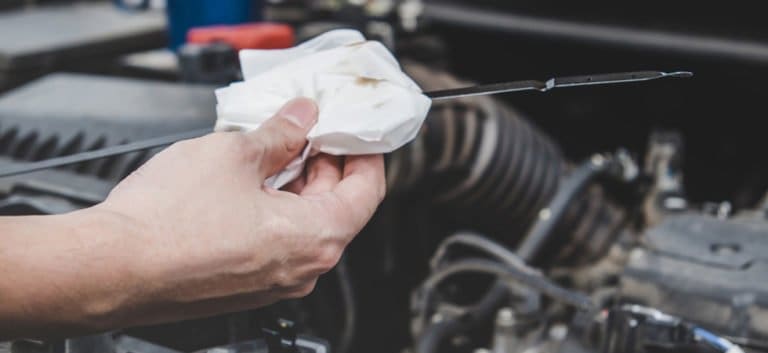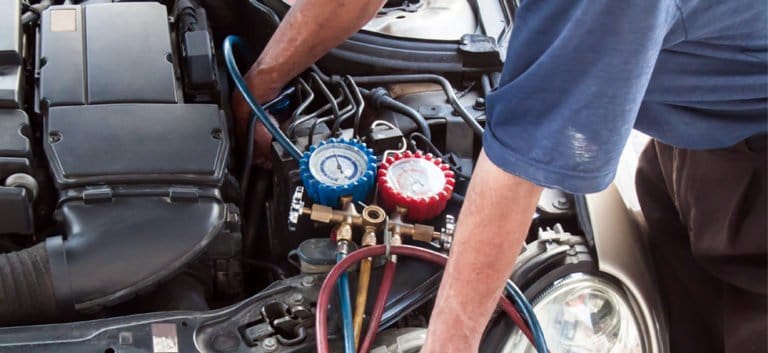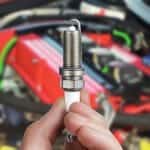Affiliate Disclosure: Some of the links in this post are affiliate links. As an Amazon Associate, we earn from qualifying purchases. Read more in our affiliate policy.
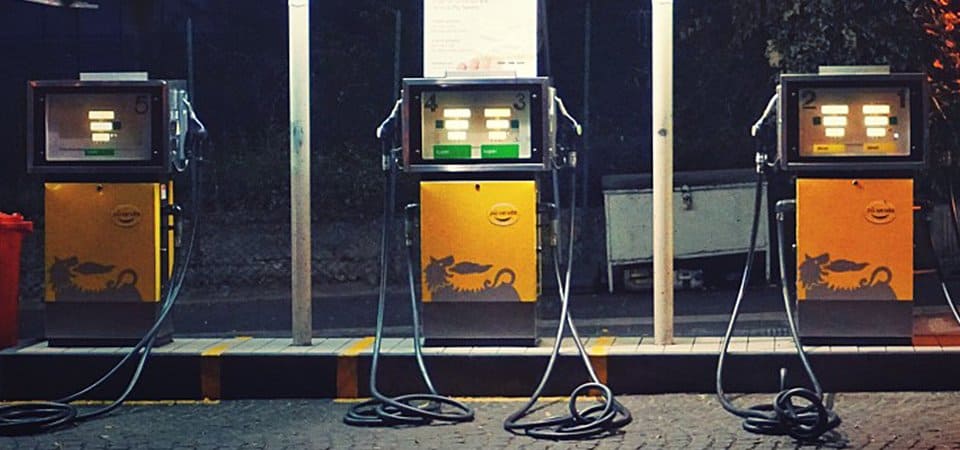
How To Dispose of Old Gas? A Gasoline Recycling And Disposing Guide
Welcome to garagechief.com’s guide on how to dispose of old gas. In this post, we’ll answer some popular questions such as what to do with old gas or where to dump it.
For some of us, it might still come as a surprise to know that gas has an expiration date. If you have your car sitting in your garage for over 30 days, then chances are the gas inside its tank has already started to go bad.
Stale gas as what we would commonly refer to old gasoline loses its combustibility and some of its properties rather quickly and so it’s important to know what to do with it when it’s way past its potent age.
How To Dispose of Old Gas – Gasoline Recycling Guide
What is old gas and what is its impact?
Before we go to the meat of our discussion let’s first discuss what is considered old gas, what does it do, and do I really have to worry about it? Also, how does it impact me, my car, and the environment?
Old gas? Do I really have to worry about it?
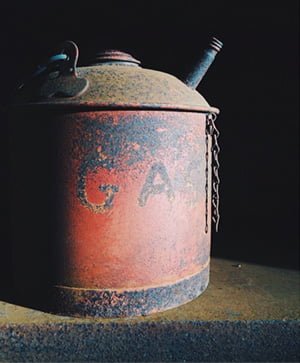
This could be okay for gas that’s been sitting for say a couple of months, but if it’s anything more than that you might want to really think twice about just adding fresh gas into the mix.
The car might still run but old gas is just nasty and that it might cost you more money, time or maybe even damage your car because of engine issues.
You may still be able to use your old gas in these portions.
- In a 9 or 10 gallon tank, you may add about half a gallon of old gas
- In a 12 gallon tank about ¾ gallon of old gas
- In a 16 gallon tank about a gallon of old gas
Now that we got that out of the way let’s get a bit technical.
What happens to gas for it to be considered old or expired?
We’ve mentioned that it only takes 30 days for gas to start degrading, and that’s because it loses some of its properties to make it as volatile as it should be.
When gas loses its combustibility it won’t only damage your engine but at the same time, it will begin to be inefficient.
This is because of a compound called ethanol which is added into fuel to reduce toxic emissions from engines. When ethanol starts to separate itself from gas it then starts losing its octane value.
The higher the octane value is (at around 87 – 93 range) the better. When the octane value degrades then the volatility or the explosiveness of the gas decreases as well.
What does old gas do for my car?
Because old gas is no longer that potent then you may notice that when you start your car it may stall, sputter or won’t start at all. You’ll have a poor fuel economy and less power as you go on the road.
Oxidation also happens and that’s never good news. In time, sour odor and gasoline color changes might manifest from your engine and these are signs of bad gasoline from your tank.
The deposits because of oxidation might block your fuel lines, might clog your filters, and decrease engine performance, among other bad things that it may all lead to.
Also, you risk your car of contamination, rust, and corrosion.
Materials to prepare for old gas disposal:
- Siphon (optional but recommended)
- Funnel
- Container can (government approved)
- Cooler or bin
- Additives
- Soap
- Absorbent (for spilled areas – Cat litter)
- Rug or cloth for cleaning (spilled areas)
What To Do With Old Gas?
Okay, not that we’ve discussed what old gas is in length, then we can go to the main part of our article, what to do with old gas?
Let’s focus on getting the gas out of the tank first in the safest way possible and then disposing of it.
-
Getting the gas out.
Some gas tanks may have a drain at the bottom, so while you may use that, it could get messy and you have to find a bucket or container that may catch the gas while dripping.
So the recommended way is to use a siphon pump. A siphon pump would be safe and effective and will make sure to get gas out of your fuel tank with minimal mess and spillage.
Just take your time and be patient when siphoning the gas out of your tank. It may take a while depending on the amount left sitting inside of it.
-
Transfer to an approved container.
Second is you need a government-approved container to transfer the old gas to. There’s been a number of discussions about the gas can, and for legal and environmental reasons just make sure to follow the rules about the container you’re going to use.
Please do not fill the containers to the brim. And make sure to seal them tightly and securely.
-
Find your local Fuel Center
The best thing for you to do after securing the gas transfer is to go find your local hazardous waste disposal center. You have an option to keep the gas can or not. In this way, you’re sure that they’ll take care of the old gas properly for you.
Some local centers would also have approved processes on how to recycle gas.
Old Gasoline Disposal – Safety Tips:
- Please do the process outdoors
- Never light a cigarette or smoke or pipe anywhere near the gas transfer
- Use a face mask
- Try not to spill it, and if you do and spill it on you, make sure to wash immediately
- Seek medical attention if burning sensation lingers if you got spilled on
- Be careful when driving with your old gas, make sure you drive safe enough to not tip it over
There may be a disposal fee from your local fuel center. And yes you can call your local fire department to ask on what to do with your old gas.
And PLEASE never leave or throw gas away anywhere. Needless to say, it is dangerous, and environmental hassle, and you might cause an accident due to irresponsible disposal.
Alternative Solutions
Restoration & Where to Dispose of old gas
Restoration can be done with the help of additives. Now additives in this sense are useful compounds found in a lot of automotive products that essentially enhance performance.
Now if you don’t know where to dispose of old gas, or maybe don’t have any local fuel center near you, then this might be an option.
Before we proceed it’s important to note that not all old gas can be restored using additives. Also, be careful of brands that claim that they can restore old gas as some of them are bogus and don’t have anything to back their claims with.
We’ll stick to our 2-6 month old gas rule, although diesel can last up to 12 months if you’d like to stretch it.
You can check the gas for its color or smell, usually bad gas can have a really sour smell and because of the oxidation can be very dark in color. So you decide.
More on Additives
So you don’t know where to dump old gas, and you decide to go the additives route.
It is an easy application, all you need to do is to add the additive you choose when the gas tank is full, and then it will just work its magic.
Additive Types:
- Gasoline Stabilizers
- Fuel Line Antifreeze
- Octane Boosters
- Fuel Injector Cleaners
- Upper Cylinder Lubricants
- Diesel Exhaust Fluid
- Anti-gelling Additives
We’ve listed down not just additives for old gas but also some additives that your vehicle will definitely benefit from. Let’s take a closer look at them:
-
Gasoline Stabilizers
Most of the vehicles that tend to have old gas left in the tank are those that are seasonal use. So all gasoline stabilizers do is maintain gasoline’s volatility. So as not to cause hard starting or stalling if you’ve left that car in the garage for a long time.
Some new products even prevent corrosion. -
Fuel Line Antifreeze
During cold weather or in winter, water condensation in your fuel tanks causes your fuel line to freeze. What the fuel line antifreeze additive do is to absorb and transport water to prevent the freeze up.
-
Octane boosters
We did mention that the higher the octane rating the more potent or combustible your gasoline is. What octane boosters do is prevent the onset of knock, which means detonation or pre-ignition.
Most octane boosters also come with a valve seat lubricant. -
Fuel Injector Cleaners
Not necessarily a direct benefit for old gas but fuel injector cleaners will help prevent clogs on your fuel injector nozzles caused by carbon deposits.
-
Upper Cylinder Lubricants
Added to the fuel tank, upper cylinder lubricants are used to help clean and lubricate sticking valves.
-
Diesel Exhaust Fluid
Not really a fuel additive, diesel exhaust fluid is utilized for maximum efficiency of your engine especially in terms of speed.
-
Anti-gelling Additives
As its name indicates anti-gelling additives are used in fuel tanks to liquefy solidified paraffin wax or gel. These gels form in the fuel and clog fuel filters during freezing temperatures.
As you can see, whether directly or indirectly, these additives help maintain your engine and your fuel, making sure they last as long as they could.
Diesel Vs. Gasoline
We can’t skip the old comparison between diesel and gasoline as part of our discussion.
Well in general, diesel (with proper storage) has about a six months’ “expiration” date, a bit longer than that of gasoline.
But it’s all the same precautions, still, be careful when handling it. People may be happy to take it from you if you’re sure that it’s still pure diesel.
Things to remember:
-
- Keep diesel clean and maintain it properly
- Keep it cool (around 70 degrees Fahrenheit)
- Treat with stabilizers
Threats on diesel fuel are:
- Oxidation
- Microbial growth
- Hydrolysis
Same thing as gasoline disposal you can still go to your local hazardous waste disposal center so that they can dispose or even recycle it for you.
Gasoline’s Environmental Impact
Here’s a list of the substances gasoline vapors gives off when burned or evaporates carbon monoxide, nitrogen oxide, particulate matter, unburned hydrocarbons. Also, it produces a greenhouse gas like carbon dioxide.
That’s why throughout the years a lot of ordinances and measures have been established to actually reduce or combat the negative effects of gasoline usage.
Some of which are:
- Emission control and Cleaner engines
- Removal of leaded gasoline for vehicles
- Required use of reformulated gas
- Required supply of ultra-low sulfur gas
- Reduction of gasoline leaks
This goes to show that improper gas disposal can really strike a huge blow to our environment so we should be extra responsible in gasoline recycling and knowledge on how to dispose of old gas oil mix is important.
Hazardous Wastes
This special section in our article is additional knowledge on some other hazardous waste materials that can be found in your home that you may not know about.
- Drain Cleaner
- Glass cleaner
- Furniture polish
- Rug Deodorizer
- Silver polish
- Mothballs
It’s recommended to just find a DIY alternative instead of using such products. Consider shopping for some environmentally friendly alternatives and products too. There are a ton of them out there.
What to do with old gas – The Bottom Line
Overall, we all know how gasoline or fuel can be a threat to our environment, so we must definitely try our best to follow rules and guidelines imposed to dispose of it properly.
Not only that, but old gas can also cause accidents or the very least engine problems for your precious vehicle. Let’s be responsible, and if there’s any lesson this “how to dispose of old gas” guide wants to accomplish is to spread awareness on the importance of handling it properly.
For all of our sake. Stay safe.
Disclaimers
All product names, logos, and brands are property of their respective owners. All company, product and service names used in this website are for identification purposes only. Use of these names, logos, and brands does not imply endorsement.
It is our policy to make every effort to respect the copyrights of outside parties. If you believe that your copyright has been misused, please provide us with a message stating your position and we will endeavor to correct any misuse immediately.
Some of the links in this post are affiliate links. As an Amazon Associate, we earn from qualifying purchases. This means if you click on the link and purchase the item, we may receive an affiliate commission, at no extra cost to you. This helps us keep this website alive. Read more in our affiliate policy.
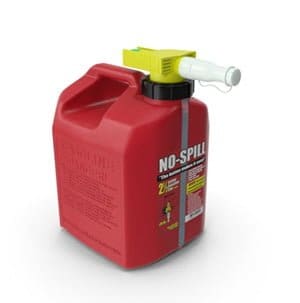 Second is you need a government-approved container to transfer the old gas to. There’s been a number of discussions about the gas can, and for legal and environmental reasons just make sure to follow the rules about the container you’re going to use.
Second is you need a government-approved container to transfer the old gas to. There’s been a number of discussions about the gas can, and for legal and environmental reasons just make sure to follow the rules about the container you’re going to use.